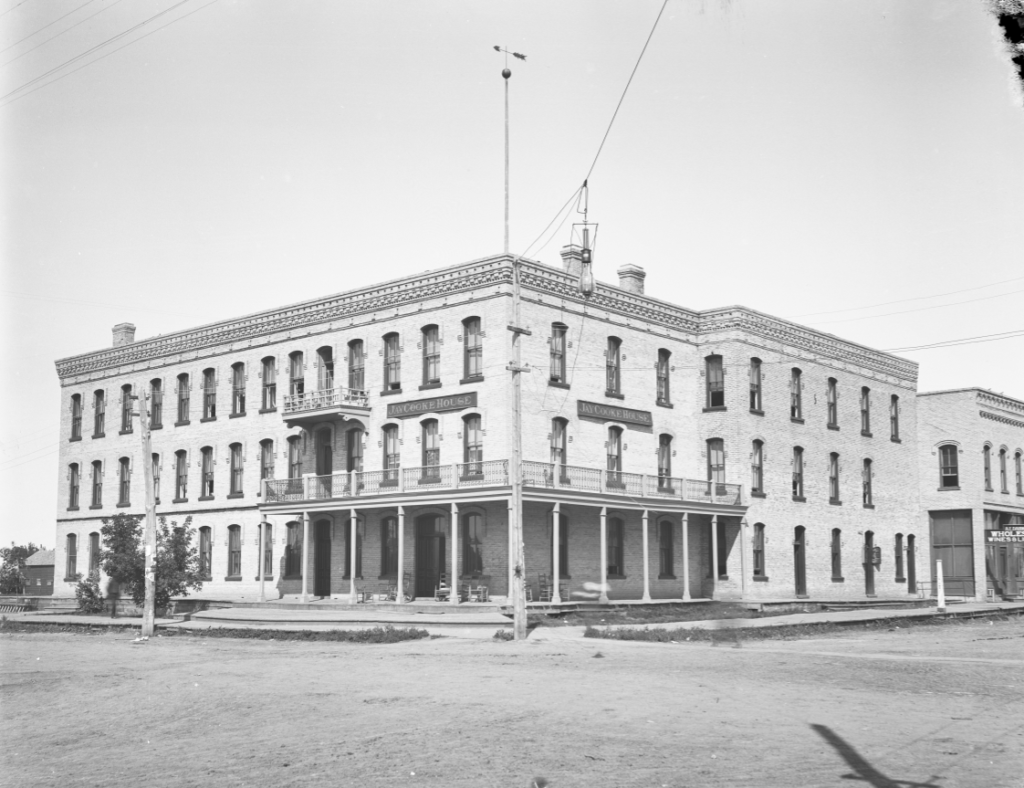clay county histories
Markus Krueger | Program Director HCSCC

The Jay Cooke House was home to Felix Battles’ First Class Barbershop starting in 1888.
When the railroad brought US settlement to the Red River Valley 150 years ago, among the early pioneers were African American professionals who saw new towns in need of a barber. These barber families created the initial core of Fargo-Moorhead’s African American community, which then grew to include many other families who worked in other occupations. A few were farmers, but the most common jobs available to Black residents of Fargo-Moorhead in the 1800s were laboring jobs, custodians, laundresses, cooks, and servants. Being a barber was one of the rare jobs at that time that allowed a Black man to work as a respected professional, to own his own business, and be his own boss.
While job discrimination excluded African Americans from most good paying professions in the 1800s and early 1900s, a unique quirk of American racism did allow one exception: white men considered African American men to be the finest barbers. The best barbers were called “Tonsorial Artists.” If a white man wanted to be pampered, going to an African American owned “First Class Barbershop” to get lathered up, shaved with a straight razor, and get a haircut was considered the height of luxury.
The 1880 US Census (the first to include Fargo and Moorhead) lists five African American families living in the 8-year-old cities, all of whom made their living as barbers. As best as I can figure with the information available to me, roughly half of the barbers in Fargo-Moorhead in the 1880s were African Americans, and most African American men living here were barbers. Black barbers also served the communities of Fergus Falls, Battle Lake, Ada, Casselton, Sheldon, and many other newly-founded towns in this area.
The first African American man to make Moorhead his home was likely Felix Battles, called “the pioneer barber of the Red River Valley” by the Moorhead Daily News. Felix was born enslaved in Mississippi and escaped slavery as a teenager sometime in the late 1850s. He served in the US Army during the Civil War and, according to his army pension records, may have moved to Moorhead as soon as 1873, just a year or two after the city’s founding. He worked as a barber and died in Moorhead in 1907.
Felix was soon joined by barbers Julius Taylor, Frank Gordon, Leroy Fort, Horton Adams, and many more. Most of the metro’s African American population lived in the east part of downtown Fargo, in the area surrounding NP Ave, the library and City Hall. Since this neighborhood burned to the ground in the 1893 Fargo Fire and has undergone a century of urban redevelopment since then, almost all of their homes and businesses are long gone. For the most part, the children and grandchildren of these barbers moved to the Twin Cities, leaving few in Fargo to keep the memory of the Black pioneers alive. Research for our upcoming exhibit Stories of Local Black History, however, is uncovering fascinating information from these families. I’ll share more in future articles.

